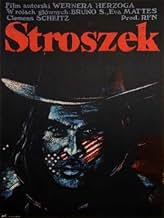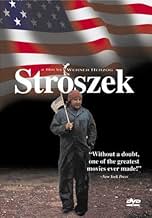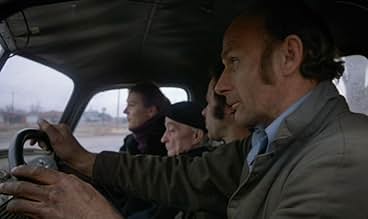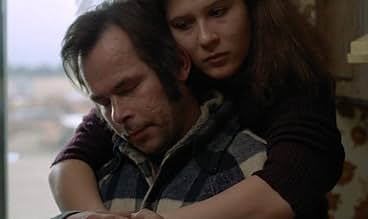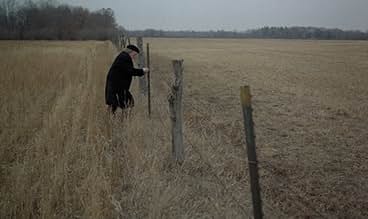In Berlin, an alcoholic man, recently released from prison, joins his elderly friend and a prostitute in a determined dream to leave Germany and seek a better life in Wisconsin.In Berlin, an alcoholic man, recently released from prison, joins his elderly friend and a prostitute in a determined dream to leave Germany and seek a better life in Wisconsin.In Berlin, an alcoholic man, recently released from prison, joins his elderly friend and a prostitute in a determined dream to leave Germany and seek a better life in Wisconsin.
- Awards
- 2 wins & 2 nominations total
- Scott
- (as Scott Mc Kain)
- Doctor
- (as Dr. Vaclav Vojta)
- Turk prisoner
- (as Yücsel Topcugürler)
- Trucker Pimp
- (uncredited)
- Director
- Writer
- All cast & crew
- Production, box office & more at IMDbPro
Storyline
Did you know
- TriviaThe entire crew disliked the last sequence so much that director Werner Herzog had to shoot it by himself. Incidentally, he considers this scene the best he has filmed.
- GoofsAfter Bruno, Eva and Scheitz buy a used car, they drive out to Wisconsin. The camera's shadow is visible on the car as Eva drives.
- Quotes
[last lines]
Deputy Sheriff: We have a 10-80 out here, a truck on fire, we have a man on the lift. We are unable to find the switch to turn the lift off, can't stop the dancing chickens. Send an electrician, we're standing by.
- ConnectionsFeatured in Century of Cinema: Die Nacht der Regisseure (1995)
- SoundtracksOn the Way Down to Phoenix
Written and Performed by Chet Atkins
The film handles the story of former asylum inmate Bruno S. (THE ENIGMA OF KASPAR HAUSER) as a Berlin street singer (in a role where he basically plays himself), who joins with his prostitute girlfriend Eva (Eva Mattes) and ageing eccentric friend Scheitz (Clemens Scheitz) to embark on a memorable journey, leaving modern Berlin, for the golden opportunities of America. The 'promised land' is represented by the dreary, austere town of Railroad Flats in rural Wisconsin, where they settle in a mobile home bought on credit, but it turns out America is not gonna fulfill their dreams that easily.
Shot in winter, Berlin is shown as a cold, forbidden and lacklustre place. Not a ray of sunshine. The dark facades of the battered apartment blocks, downlit bars filled with smoke and shabby characters, the only goal the folks in Bruno's world seem to have, is merely make the best of things.
Often read as a critique of how capitalist American society destroys the individual, Herzog sees the film as less a critique of the United States than as "a eulogy" in the wake of the American dream, for such shattered hopes could develop in virtually any country (see "Herzog on Herzog", p. 144). He does throw in some of the eccentricities of American life, but above all, it's a somewhat surreal account of three simple folks, short-changed in life, desperately trying to make ends meet. From the start it's clear that these three are made for each other. They simply do not fit in any stratum of society really. They're too fragile for the world of pimps and low lives that formed the background of their lives in Berlin. Although not dumb, Bruno is too half-witted to be taken seriously by most people. Eva's background is not fully explained, but she's emotionally fragile and dependent, while elderly Scheitz's chances to get ahead in life seems to lay in the past.
It's a bleak and uncompromising film, this tragicomic account of this odd trio in pursuit of a better life outside the dreary confinements of Berlin's lower casts of society, but it's so intensely moving and honest with its subjects, that alone is something to admire.
Camera Obscura --- 9/10
- Camera-Obscura
- Mar 8, 2007
- Permalink
- How long is Stroszek?Powered by Alexa
Details
- Release date
- Country of origin
- Languages
- Also known as
- La balada de Bruno S
- Filming locations
- Plainfield, Wisconsin, USA(hold up on North Street)
- Production companies
- See more company credits at IMDbPro
Box office
- Gross worldwide
- $3,451
Contribute to this page


